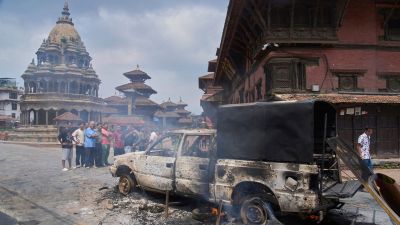Man gets 10 years for possessing 5 gm smack
NEW DELHI, September 10: Jarnail Singh pleaded for leniency. He said he had a wife and four daughters to support. But the judge had to go...

NEW DELHI, September 10: Jarnail Singh pleaded for leniency. He said he had a wife and four daughters to support. But the judge had to go by the Narcotic Drugs and Psychotropic Substances (NDPS) Act, 1985, and sentenced him to ten years rigorous imprisonment and a fine of Rs 1 lakh for carrying on his person five grams of smack.
Additional district and sessions judge Naipal Singh said that “keeping in view the provision contained under Section 21 of the Act prescribing minimum sentence (there was) … no discretion left to the court to award less than the minimum prescribed sentence, for any reason whatsoever.” Jarnail Singh was arrested by the Tilak Nagar police on March 13, 1995 at the wooden bridge located in Sant Nagar Extension. Acting on a tip-off, sub-inspector Surinder Singh had organised a raiding party and nabbed him with 5 gms of smack.
A charge-sheet was filed under Section 21 of the Act, and the court framed charges under Section 20 of the Act on September 20, 1995. Jarnail Singh maintained that he was innocent and that he had been falsely implicated. He told the court that the police had picked him up from home and planted the drugs on him.
However, the public prosecutor pointed out that “there is no challenge of the prosecution case on any ground as nothing has been suggested motivating the witnesses to falsely implicate the accused”.
Defence Counsel K.L. Juneja argued that there were no public witnesses, and the case was only based on police statements. A conviction cannot be based on their testimony, he said.
The police insisted that they had approached several bystanders to join the raiding party, all of whom refused. While acknowledging that the police had made “sincere efforts” to seek public help, the judge said that the “general indifferent attitude of people … has been developed because of the humiliation” they face “as a witness in court”. That appears to be the cause for not coming forward, felt the judge. “No law provides for force or compelling any person to be a witness,” he said. The judge also noted that the policemen had no motive to falsely implicate the accused. Neither were there any material contradictions in their testimony or any improvements at the trial stage. “I find that their testimony cannot be discarded as untrustworthy merely because they are police officials”.
The judge also disagreed with the defence counsel that that the mandatory provisions under the Act had not been complied with. He said that the secret information that the SI received had been recorded in the daily diary. On the basis of this a raiding party was formed. All the information was conveyed to the Tilak Nagar Duty Officer over the telephone and then passed on to the station house officer (SHO) and assistant commissioner of police (ACP) Madan Mohan Oberai in accordance with Section 42 of the Act.
Photos



- 01
- 02
- 03
- 04
- 05



























